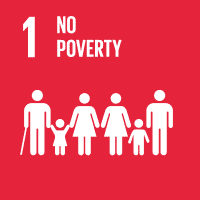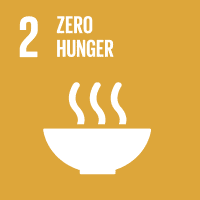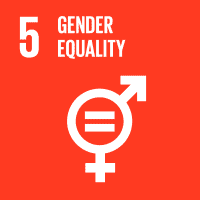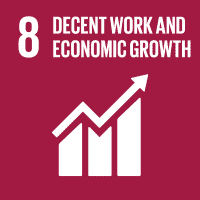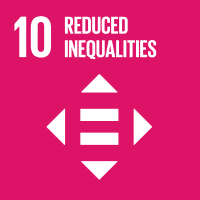The Senegalese phrase seen suuf means ‘your land’. Secure ownership of agricultural land is the focus of a project of the same name. The project is aligned with the Compact with Africa and is part of the partnership established between Senegal and Germany to encourage reforms. It is funded by the German Federal Ministry for Economic Cooperation and Development (BMZ) and is being implemented by GIZ. Land rights are a key issue in Senegal, particularly for women. Making them stronger is a step towards achieving food security and economic development.
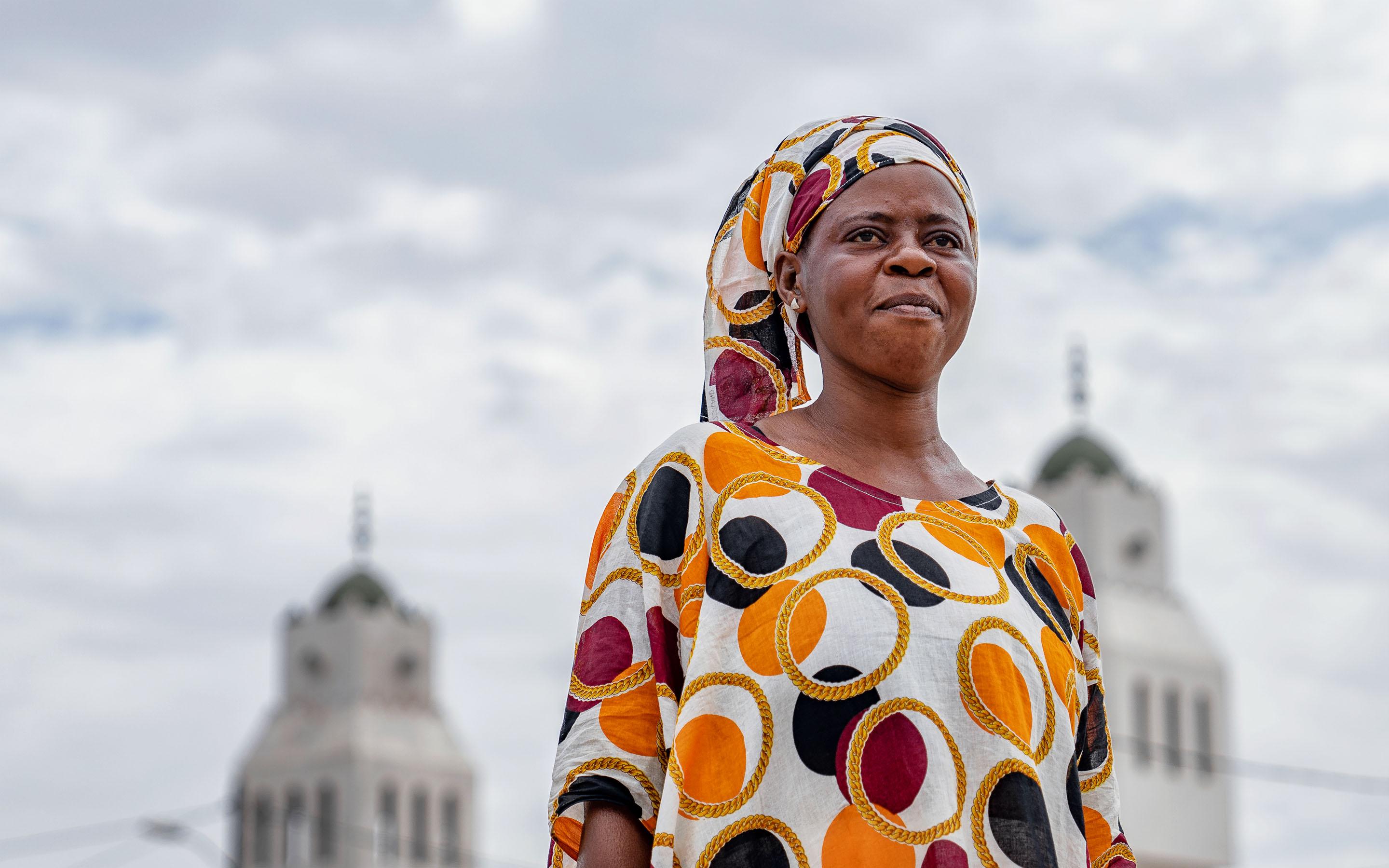
‘No one can chase us away from here now’
A new law is making all the difference to a small farmer in Senegal. It facilitates access to land. GIZ is supporting people, especially women, in sharing knowledge about their new rights. This helps to reduce poverty and promote employment.
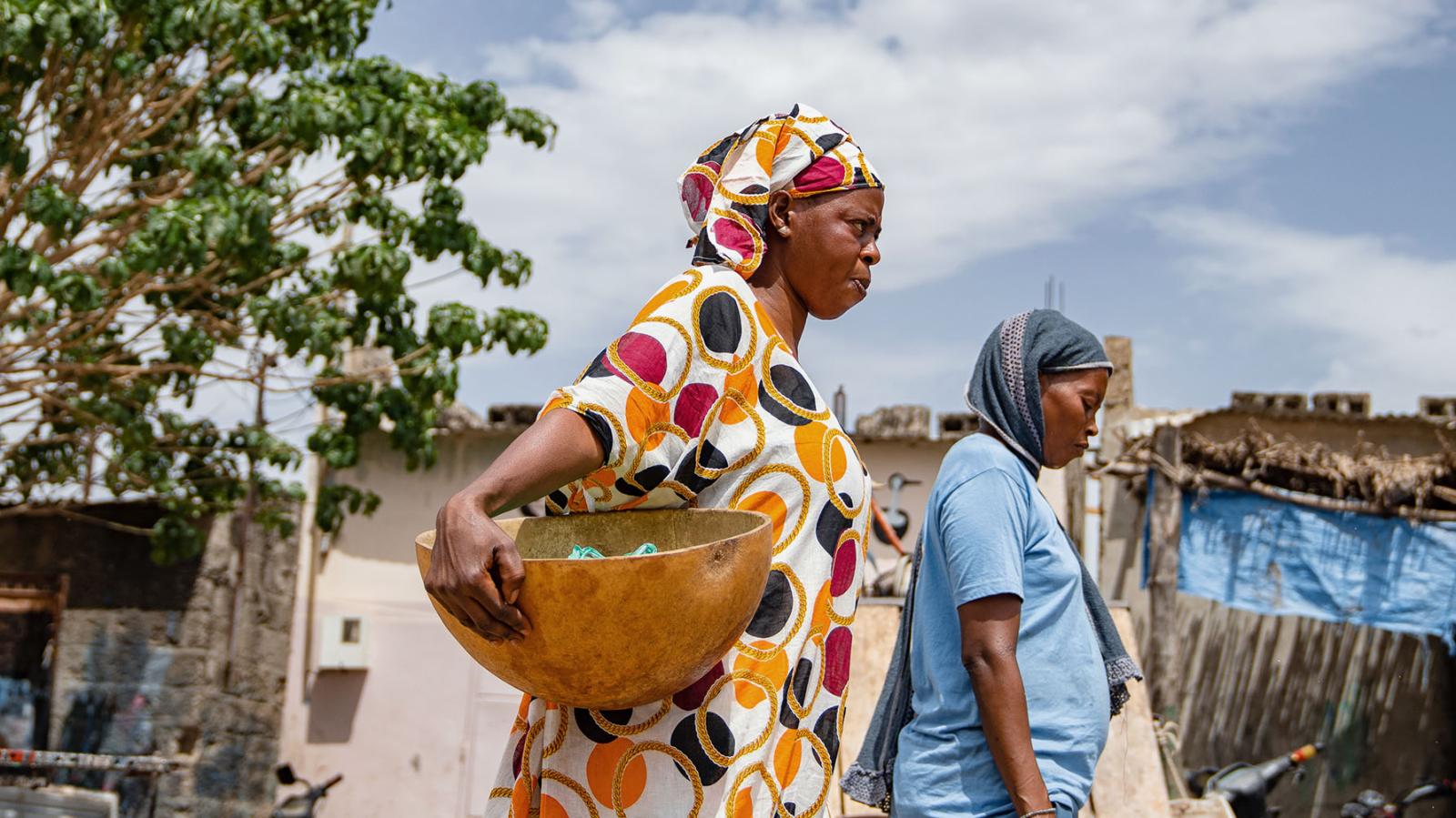
Ndella N’Diaye is in a hurry. The 35-year-old is on her way to market. Under her arm she has a large calabash – a bottle gourd that has been hollowed out and dried – ready to carry her shopping. She is planning to buy ingredients for mbakhalou saloum, a traditional dish from the Saloum region of Senegal. The market in Latmingué has everything she needs: she buys fish, rice, ground peanuts and some vegetables. She regularly cooks for other people and earns part of her income from selling these meals.
But the mother of four does not find it easy to provide for her family. ‘I want them to have a good education and find jobs afterwards. But there are days when I don’t know how I’ll be able to pay for exercise books and pens for school.’ Her husband is often away looking for work in other parts of the country and has no steady income. She does what she can, selling home-made hibiscus juice and doing some farming to supplement her income.
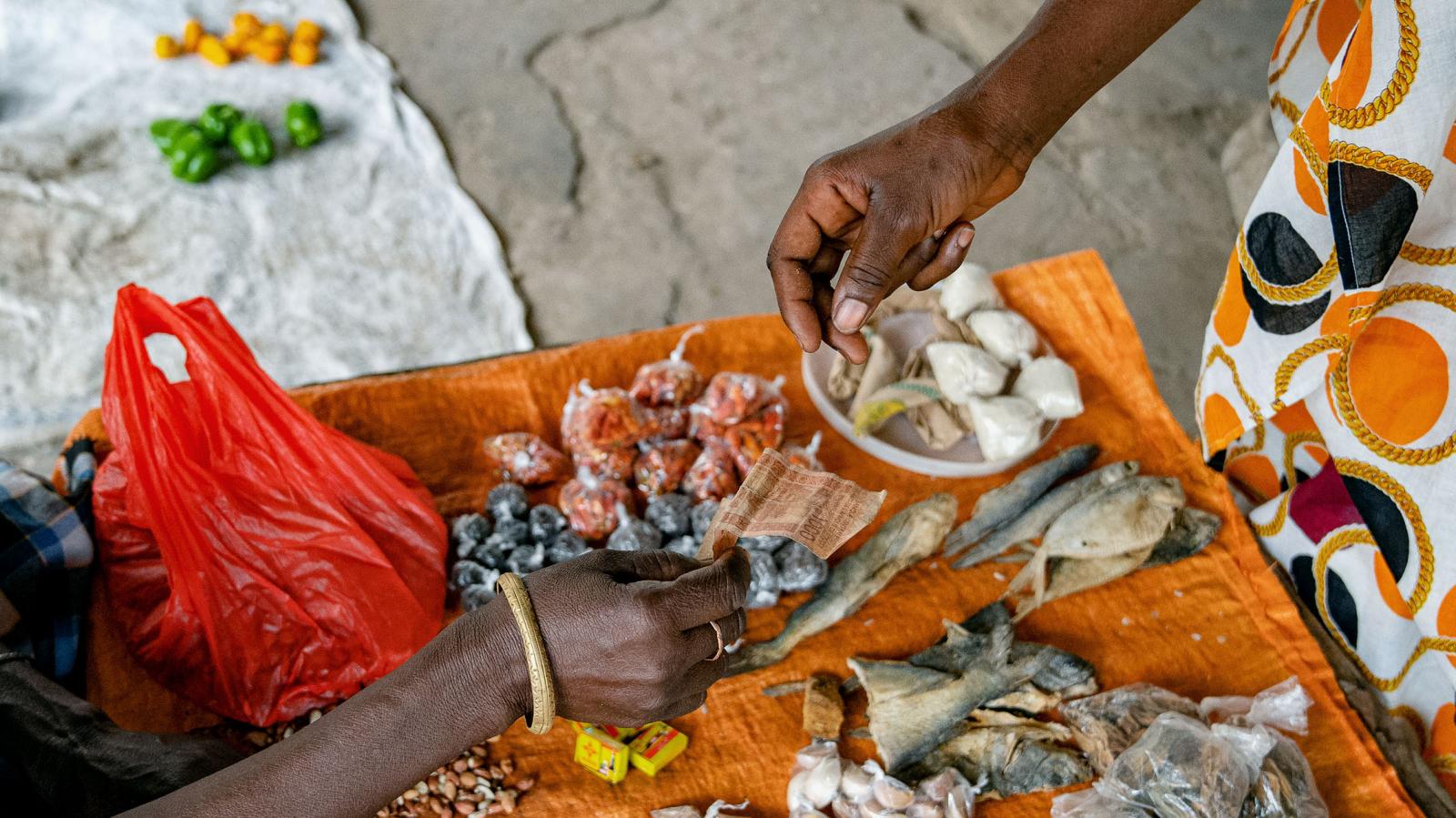
Women are the mainstay of agriculture in Africa
Ndella N’Diaye grows vegetables as part of a women farmers’ cooperative. It goes by the name of Gie Book Liggey, which translates as ‘getting things done together’. Women smallholders are the driving force behind the production of animal and agricultural products in Africa. Across the continent as a whole, women produce around 80 per cent of all food and make up half of the agricultural workforce.
Ndella N’Diaye is now back at the smallholding, which is also home to her parents-in-law. For a time, she farmed her own plot there. Selling the tomatoes she grew on it helped her earn enough money to pay for school. ‘My plot was over there,’ she says, pointing to an area near the fence. But that suddenly came to an abrupt end. Without warning, the municipality claimed the land for itself, saying that it might want to build houses there in the future.
Until recently, this sort of thing was not unusual in Senegal. Individual land ownership and secure ownership rights were the exception. Even families who had farmed plots for decades often had no written evidence to document their long-established use of the land. If enquiries were made – by the municipality, for example – it was only the men who were contacted in any case. Nobody listened to the women.
Similarly, it is the sons, not the daughters, who inherit land in Senegal. Until recently, this principle was also reflected in the legal system. Only one family member could be registered as the ‘entitled user’, and this was generally the male head of the family. A new law has now changed this, allowing all family members to register their rights to the land. This is a milestone for women in particular.
‘It was always the men who decided which plots the women would get,’ says Ndella N’Diaye. And with no legal security, women were constantly at risk of losing them again. This degree of dependency is very stressful, she says, as she gets started on her cooking, putting water on to boil over the open hearth for rice. ‘Losing my plot was a terrible experience for me. But back then there was nothing I could do,’ she recalls.
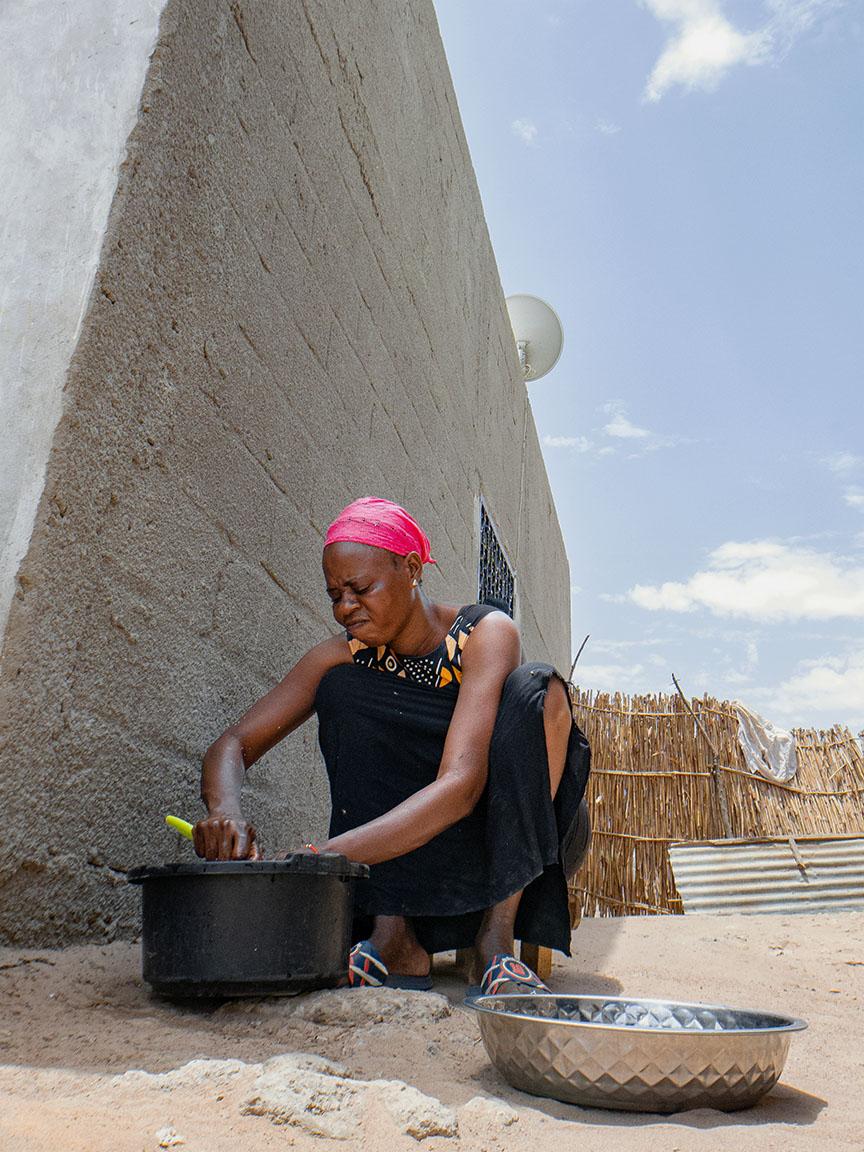
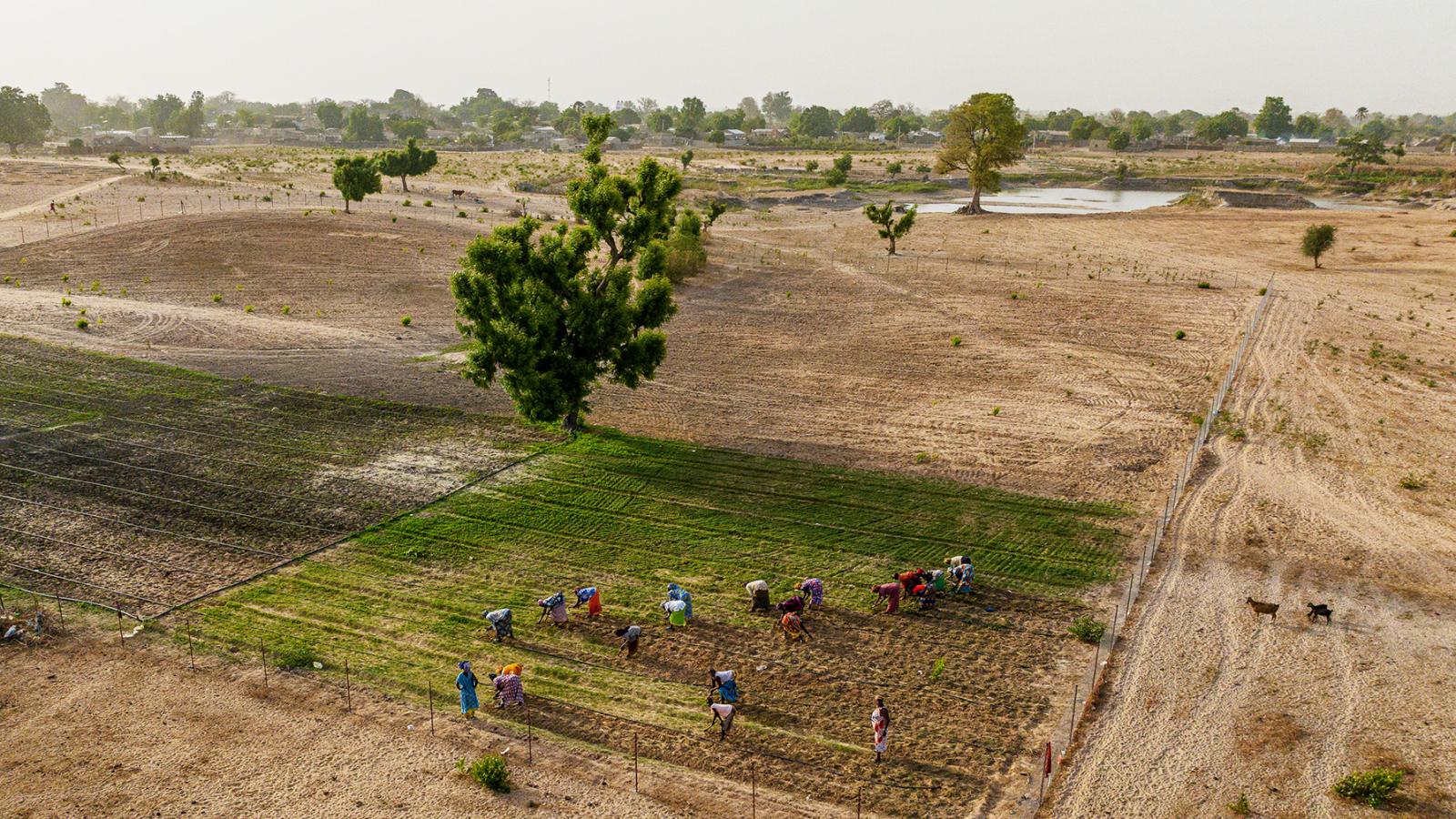
New law clarifies land use
The new law strengthens the rights of women like Ndella N’Diaye. For this to work in practice, it is vital that municipal authorities establish land registries (bureaux fonciers), because that is where the precise details of the plots of land are documented together with the rights of use. In the past, the lack of such documentation frequently led to disputes. It was often not clear where plots began or ended.
The new legislation has another advantage: women can form a cooperative without any bureaucratic hurdles and apply for the use of a certain plot that they wish to farm together. If this is approved, they receive a déliberation – French for a decision or ruling. For women like Ndella N’Diaye, this word has become the key to a better future.
Since the beginning of the year, cooperatives that farm one or two hectares have made particular use of these regulations. ‘In Latmingué alone we have 150 cooperatives. Around 30 have already received their déliberation,’ says Andel Kitane in the town hall. The 43-year-old is one of the mayor’s deputies. There is a large book on his desk in which receipt of the applications is registered. ‘Sometimes processing can take a month, sometimes just a few days,’ he says. If a group of women claim a particular plot, the municipality organises an on-site meeting to view it. If there are no other plans for its use, the documents are handed over.
Legal security is especially important for women
Women should be given preference in the process, says Kitane. ‘They are our priority.’ After all, the whole municipality feels the benefit, he says. ‘For example, women are very active in cultivating vegetables. That improves families’ food situation.’ What is more, the female smallholders can make extra money by selling their produce. This can be used not only for their children’s education but also to pay doctors’ bills. That’s important, as Ndella N’Diaye can confirm. She has previously had to use up her hard-earned savings when family members fell ill.
Kitane is sure about something else, too: if the legal situation for farmland is transparent, the people farming it are more inclined to invest – for example, in constructing fences to protect vegetables from livestock or installing irrigation systems. That in turn increases yields and makes farming more professional.
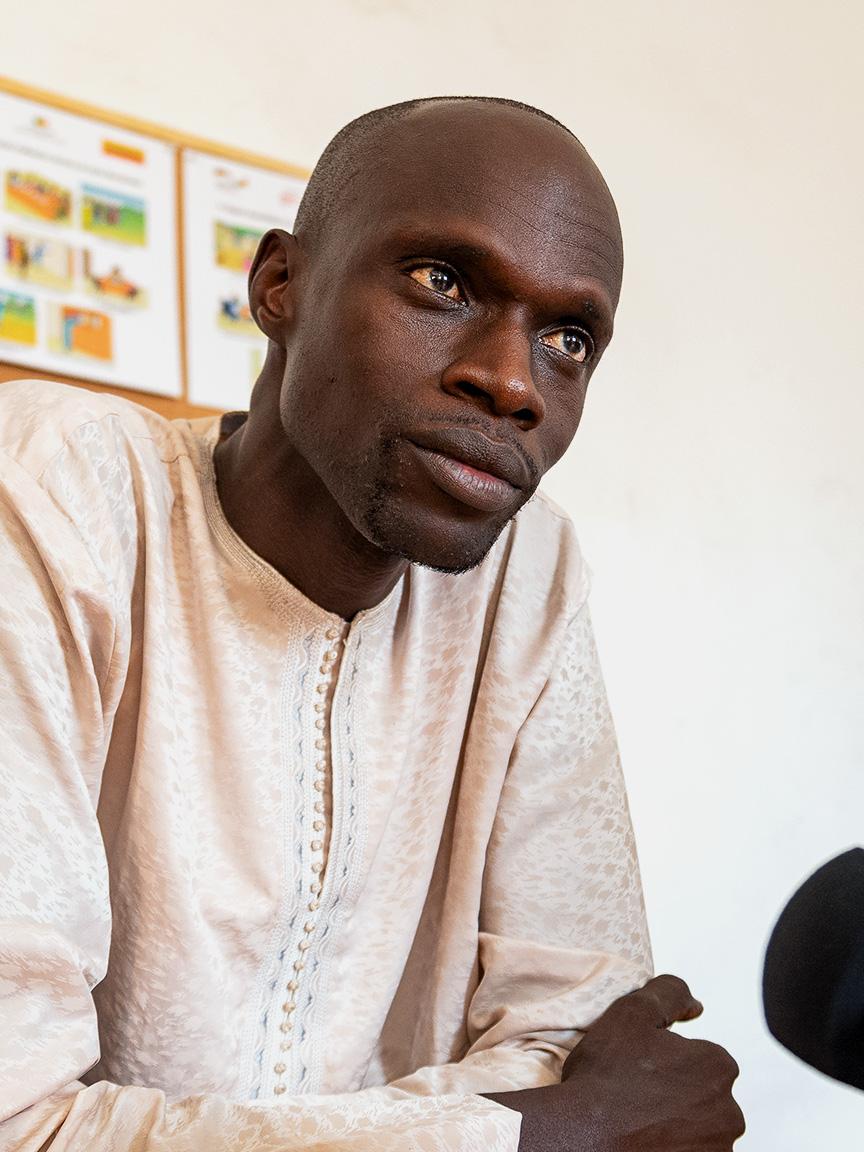
Andel Kitane, Deputy Mayor in Latmingué
Publicising the law
Fama Dieng Ndiaye is a lawyer living in Senegal’s capital, Dakar, which is around four hours’ drive from Latmingué. She sees the new legislation as an important step in making it easier for women to access land. But as she points out, ‘People need to be made more aware of the new law.’ And it takes time for traditions and cultural habits to change. Positive changes do not happen overnight.
In Latmingué, Ndella N’Diaye is keen to share her knowledge about the new law and has already done so in several workshops organised by GIZ with its partners. In personal meetings, the smallholder tells people in her region about the steps her cooperative took to gain its déliberation and the advantages this has brought.
‘Teaching people to fish is better than simply handing out fish.’
Ndella N’Diaye hopes that as many cooperatives as possible and families too will apply for papers documenting their right to use the land. It is a decisive step towards independence, she says, quoting a saying in Wolof, the country’s most widely spoken language: ‘Teaching people to fish is better than simply handing out fish.’ She is no longer dependent on someone letting her and the other women have a plot of land. Instead, they can claim their rights of use.
For Ndella N’Diaye in Senegal, the breakthrough came on 22 February 2023, when her cooperative received approval to use the land. Gie Book Liggey now has 1.58 hectares for farming. ‘The handover was a really important moment. The document shows that this is our plot and we can farm it as we see fit. No one can chase us away from here now.’
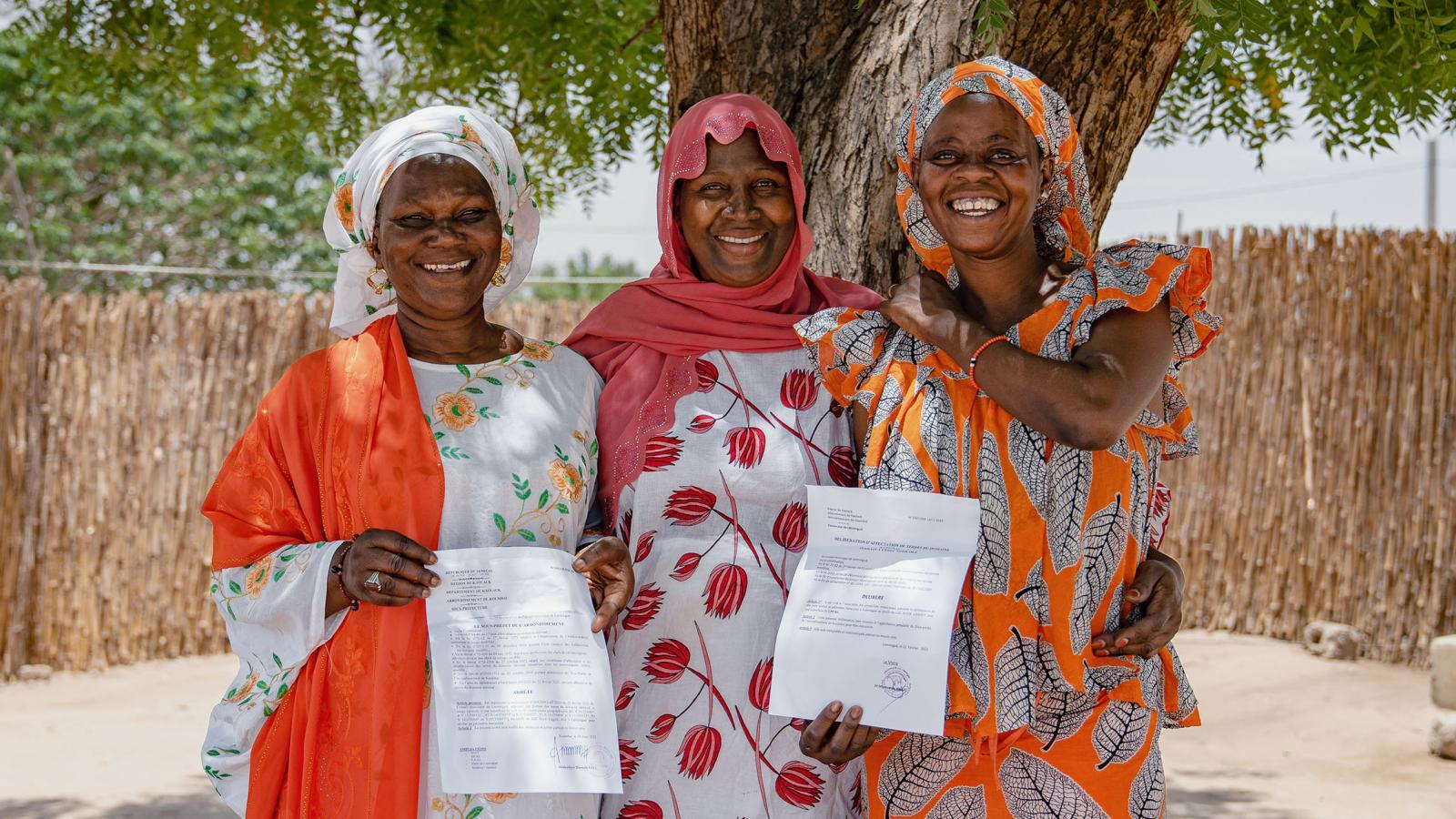
Ndella N'Diaye (right) and women farmers of the cooperative Gie Book Liggey with their approval to use the land, the déliberation.
